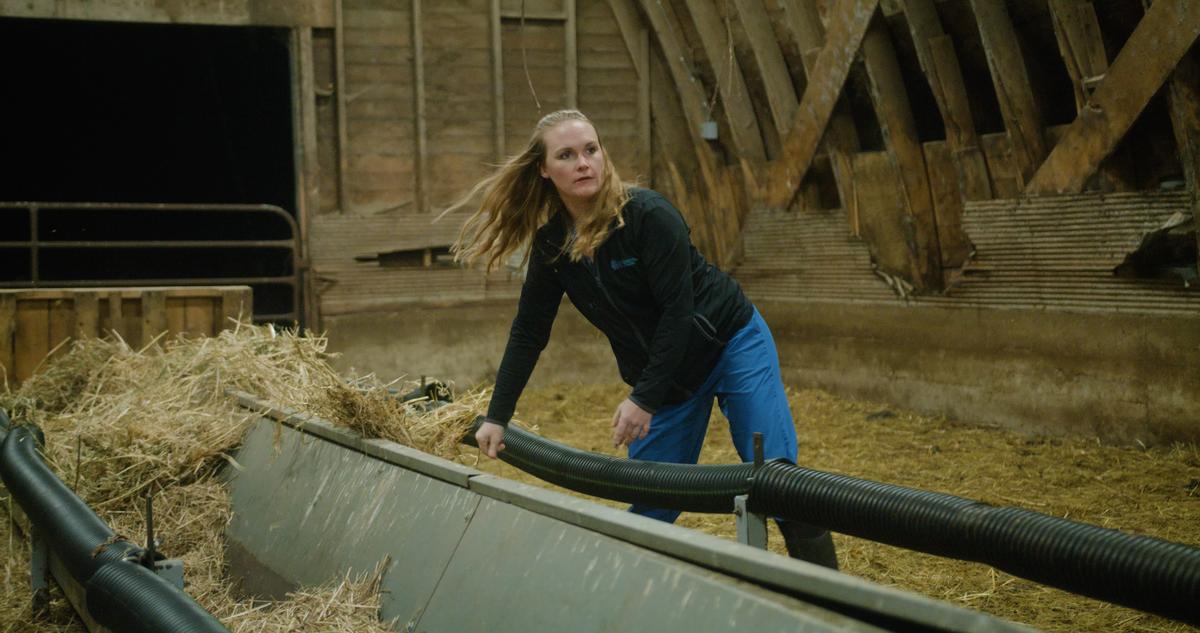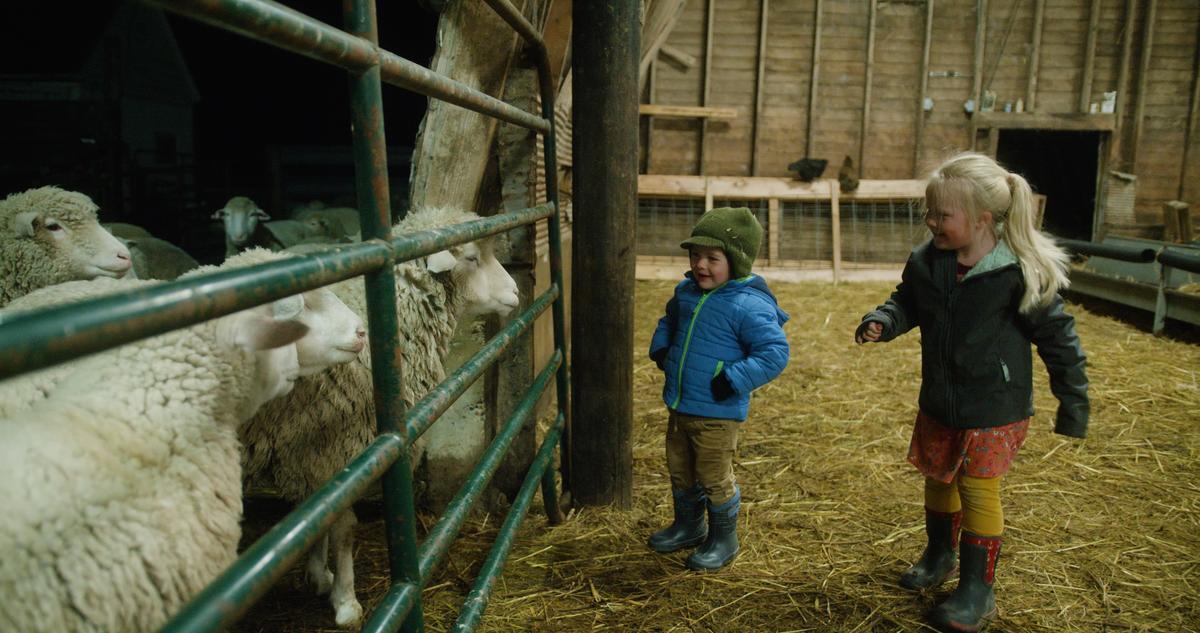
Dr. Syverson and her husband, Paul, raise sheep at their homestead in Benson, Minnesota.

Dr. Syverson enjoys coming home after work to tend to the animals with her children.
She is now part of the program that trains students in a rural setting. “I was fortunate as a University of Minnesota student to participate in the RPAP program, which is a rural physician associate program, where we spend nine months in a rural hospital. I did that as a student, and it definitely solidified my calling to rural family medicine.
“So this year, I’ll take on my first student who will be here for six months. She’ll get to come with me to deliver babies and work in the E.R. and do everything I do on a daily basis. One of the things I really look forward to is training the next generation.”
If you would like to learn more about supporting rural healthcare and current medical students, and are considering a gift opportunity, please contact Elizabeth Simonson, director of development, Duluth Campus at [email protected] | 218-391-4772, or Carrie Albers, director of development, Twin Cities Campus, at [email protected] | 612-626-8481.